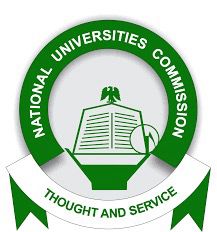
Abuja, Nigeria – The National Universities Commission (NUC) has announced plans to integrate 12 new academic programmes into the Nigerian university curriculum, as part of its broader efforts to align higher education with 21st-century demands and improve graduates’ employability and self-reliance.
The new programmes are set to be included in the Core Curriculum and Minimum Academic Standards (CCMAS) after undergoing necessary stakeholder validation and expert review.
According to Nigerian Tribune, these programmes were either omitted or remained outstanding during the last major curriculum overhaul of the Nigerian University System (NUS).
The 12 proposed courses include:
Professor Abdullahi Yusufu Ribadu, Executive Secretary of the NUC, explained that the initiative is a response to growing requests from universities and professional bodies, seeking the development of new, relevant programmes.
“We analysed each submission to assess its viability and market demand. Eventually, we selected 12 academic programmes for inclusion in the CCMAS,” Ribadu said.
He noted that the commission is empowered to set minimum academic standards and accredit degrees in all Nigerian universities, under Section 10(1) of the Education (National Minimum Standards and Establishment of Institutions) Act, Cap. E3, Laws of the Federation, 2004.
“As the global education landscape evolves, our curriculum must evolve too. We need programmes that not only impart knowledge but build critical thinking, innovation, and adaptability,” he added.
The NUC has constituted expert panels to finalize the content of the new programmes. Each panel includes two NUC representatives and subject-matter experts selected from across the country’s six geopolitical zones.
Mal. Abubakar Girei, Acting Director of Academic Planning at the NUC, said that assembling such panels is key to enhancing academic quality and ensuring Nigerian students remain globally competitive.
“While it is practically impossible to gather all professors, we’ve selected resource persons with vast expertise and regional representation,” he said.
The curriculum will be structured with 70% developed by NUC and the remaining 30% left to universities to tailor based on local context—consistent with the previous curriculum development model.
The final draft curriculum will undergo another round of review before submission to the NUC management and ultimately the Federal Executive Council (FEC) for formal approval.
Prof. Ribadu urged the review team to contribute constructively and align their recommendations with national development goals and global best practices.
“Critique is welcome—but with the aim of strengthening, not condemning. We deeply appreciate the sacrifices and dedication of everyone involved,” he said.
This development underscores the NUC’s continued commitment to modernizing Nigeria’s higher education landscape and equipping graduates with skills tailored to emerging industries and global challenges.